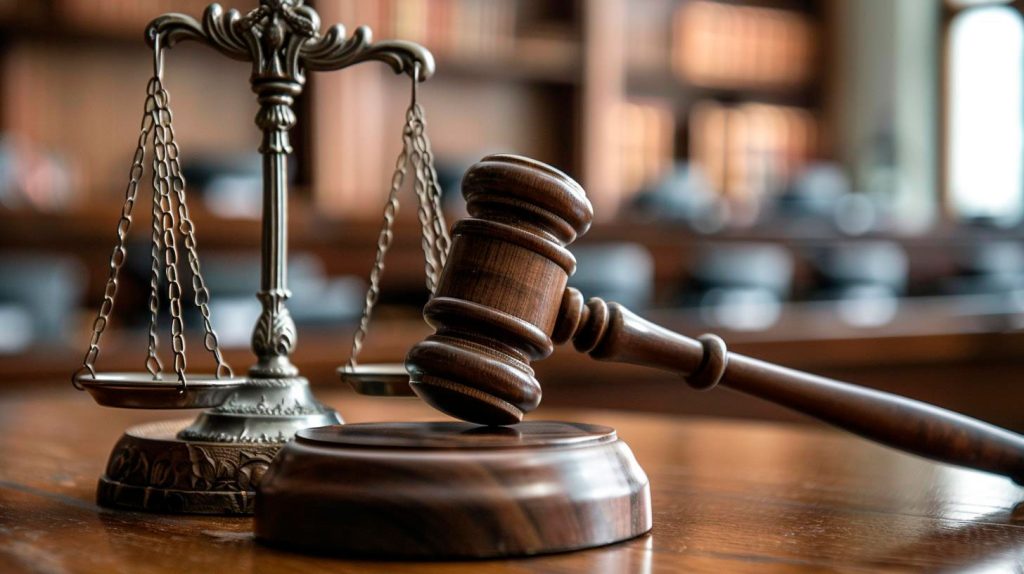
Navigating the Rights and Protections Under the Credit Card Accountability Responsibility and Disclosure Act
As a consumer, it is important to be aware of the various provisions of the CARD Act to ensure that you are not taken advantage of by credit card companies.
Key Provisions of the CARD Act
One of the key provisions of the CARD Act is the restriction on excessive fees. Credit card companies are now limited in the amount they can charge for various services, such as late fees and over-the-limit fees. This provision helps protect consumers from being hit with exorbitant fees that can quickly add up and lead to financial hardship.
Another important provision of the CARD Act is the requirement for credit card companies to provide clear and transparent information to consumers. This includes clearly stating the terms and conditions of the credit card agreement, as well as providing information on interest rates, fees, and other important details. This transparency helps consumers make informed decisions about their credit card usage.
Additionally, the CARD Act prohibits credit card companies from engaging in certain unfair practices, such as retroactive rate increases and deceptive marketing tactics. This helps ensure that consumers are treated fairly and are not misled by credit card companies.
Benefits of the CARD Act for Consumers
By understanding and navigating the rights and protections under the CARD Act, consumers can benefit in several ways. One of the main benefits is the increased transparency in credit card agreements, which allows consumers to make informed decisions about their finances. This transparency helps consumers avoid unexpected fees and charges, leading to better financial management.
Another benefit of the CARD Act is the protection it offers against unfair credit card practices. Consumers are now better protected from deceptive marketing tactics and hidden fees, ensuring that they are treated fairly by credit card companies. This protection gives consumers peace of mind knowing that they have legal rights that safeguard their interests.
Furthermore, the restrictions on excessive fees imposed by the CARD Act help consumers avoid unnecessary financial burdens. By limiting the amount that credit card companies can charge for various services, consumers can better manage their finances and avoid falling into debt traps.
Statistics on Credit Card Usage
According to a survey by the Federal Reserve, the average American household carries over $8,000 in credit card debt. This highlights the importance of understanding the rights and protections under the CARD Act to avoid falling into excessive debt. By being aware of the provisions of the law, consumers can better manage their credit card usage and avoid financial pitfalls.
Furthermore, a study by the Consumer Financial Protection Bureau found that over 25% of credit card holders have experienced an increase in their interest rates without prior notice. This highlights the need for the protections offered by the CARD Act to prevent credit card companies from engaging in unfair practices that can harm consumers.
As a consumer, it is essential to be informed about your rights and protections under the CARD Act. By understanding the various provisions of the law, you can better navigate the complex world of credit card usage and protect yourself from unfair practices. The CARD Act provides important safeguards for consumers, ensuring that they are treated fairly by credit card companies and have the information they need to make informed financial decisions.
Overall, the CARD Act plays a crucial role in protecting consumers from deceptive marketing tactics, excessive fees, and unfair practices. By being aware of your rights under the law, you can confidently manage your finances and avoid falling into financial distress. Remember that knowledge is power, and by educating yourself on the CARD Act, you can take control of your financial future.
Resources for Consumer Advocacy and Legal Assistance in Managing Credit Card Debt
In this article, we will explore some of these resources and how they can benefit you in your journey towards financial freedom.
Consumer Advocacy Organizations
Consumer advocacy organizations play a vital role in advocating for consumer rights and providing support to individuals struggling with credit card debt. These organizations often offer education, counseling, and advocacy services to help consumers understand their rights and navigate the debt relief process. One such organization is the National Consumer Law Center, which provides resources and information on consumer rights and debt relief options.
Another valuable resource is the Consumer Financial Protection Bureau (CFPB), which works to protect consumers from unfair and deceptive practices in the financial industry. The CFPB provides resources on credit card debt, including information on debt collection practices, credit counseling, and debt settlement options.
By seeking assistance from consumer advocacy organizations, you can gain valuable insights into your rights as a consumer and access resources to help you manage and reduce your credit card debt effectively.
Legal Assistance Services
Legal assistance services can also provide valuable support to individuals struggling with credit card debt. Legal aid organizations offer free or low-cost legal services to individuals who cannot afford to hire an attorney. These organizations can help you understand your rights under the law and advocate on your behalf in negotiations with creditors.
Additionally, hiring a consumer law attorney can provide you with expert legal representation in dealing with credit card debt issues. A knowledgeable attorney can help you explore debt relief options such as debt settlement, debt consolidation, or bankruptcy, and guide you through the legal process to protect your rights as a consumer.
By enlisting the help of legal assistance services, you can ensure that your rights are protected and that you have access to the legal resources you need to effectively manage your credit card debt.
Benefits of Using Consumer Advocacy and Legal Assistance Services
There are several benefits to utilizing consumer advocacy and legal assistance services in managing your credit card debt. These resources can provide you with:
- Expert guidance and support in understanding your rights as a consumer
- Access to valuable resources and information on debt relief options
- Legal representation to advocate on your behalf with creditors
- Protection of your rights under consumer protection laws
- Assistance in navigating the complex legal process of debt management and negotiation
Industry Statistics
According to a recent report by the Federal Reserve, the average American household carries over $8,000 in credit card debt. This staggering amount of debt can have serious financial consequences for individuals and families, leading to increased stress and financial hardship.
Furthermore, a survey conducted by the National Foundation for Credit Counseling found that over half of Americans say they are not confident in their ability to pay off their credit card debt. This lack of confidence highlights the need for accessible resources and assistance to help individuals effectively manage their debt and achieve financial stability.
Managing credit card debt can be a daunting task, but with the right resources and support, you can take control of your financial situation and work towards a debt-free future. Consumer advocacy organizations and legal assistance services can provide you with the guidance and support you need to navigate the complex world of debt management and protect your rights as a consumer.
By utilizing these resources, you can access valuable information, advocacy services, and legal representation to help you effectively manage your credit card debt and achieve financial freedom. Remember, you don’t have to face your debt alone – seek out the resources and assistance available to you and take the first step towards a brighter financial future.
Steps to Take When Facing Credit Card Debt Collection
Here are some important steps to take when facing credit card debt collection:
1. Review the Debt Collection Notice
Upon receiving a debt collection notice, carefully review the information provided, including the amount owed, the name of the creditor, and the contact information of the debt collector. Make sure to verify the accuracy of the debt and request validation if needed. This will help you understand the nature of the debt and your options for resolving it.
2. Know Your Rights
Under the Fair Debt Collection Practices Act (FDCPA), debt collectors are required to follow certain rules when attempting to collect a debt. Familiarize yourself with your rights as a consumer, including the right to dispute the debt, request verification, and request that the debt collector cease all communication with you. Knowing your rights can help you protect yourself from harassment and unfair practices.
3. Explore Debt Relief Options
If you are struggling to repay your debts, consider exploring debt relief options such as debt settlement, debt consolidation, or bankruptcy. These options can help you negotiate with creditors, lower your monthly payments, or eliminate your debts altogether. Consulting with a qualified attorney can help you understand the pros and cons of each option and choose the best solution for your financial situation.
4. Respond Promptly to Legal Actions
If you have been served with a lawsuit for unpaid credit card debt, it is crucial to respond promptly to avoid a default judgment. Consult with an attorney to formulate a strong defense and negotiate a settlement with the creditor. Ignoring legal actions can result in wage garnishment, bank levies, or other harsh consequences.
5. Seek Legal Assistance
When facing credit card debt collection, it is important to seek legal assistance from a qualified attorney who specializes in debt collection defense. An experienced attorney can help you understand your rights, negotiate with creditors, and represent you in court if necessary. They can also help you explore alternative debt relief options and prevent further legal actions.
Facing credit card debt collection can be overwhelming, but taking the right steps can help you protect your rights and achieve financial freedom. By reviewing the debt collection notice, knowing your rights, exploring debt relief options, responding promptly to legal actions, and seeking legal assistance, you can effectively navigate the debt collection process and work towards a positive resolution. Remember, you are not alone in this journey – there are resources and professionals available to help you overcome your financial challenges.













OMG, credit card debt is like the worst! But yeah, consumers have rights, like the right to dispute any incorrect charges. Can the credit card companies just ignore your complaints?
Hey y’all, just wanted to remind everyone that you have rights when it comes to credit card debt, like the right to be treated fairly and respectfully by debt collectors. Can they just be straight up rude to you?
Yo, I heard that if you hire a lawyer, you can totally fight those credit card companies who are trying to screw you over. Is that true?
Yo bro, lemme tell ya, don’t stress too much. Consumers have rights when it comes to credit card debt, like protection from harassment and unfair practices. Can creditors just keep calling you at all hours of the day?
Hey guys, is it true that if you’re dealing with credit card debt, you have the right to request proof of the debt from the company?
Hey y’all, so like, when you’re stuck dealing with credit card debt, do you have any rights as a consumer? Can the credit card companies just like, come after you non-stop?
Hey guys, I was wondering, if I miss a credit card payment, can the company just like, jack up my interest rates sky high?
Hey peeps, so like, do I have to pay off all my credit card debt at once or can I like make payment arrangements?
Sup peeps, so like, what happens if you can’t pay off your credit card debt? Can the companies just take all your stuff or what?
Hey everyone, quick question, can the credit card companies take me to court if I can’t pay off my debt?